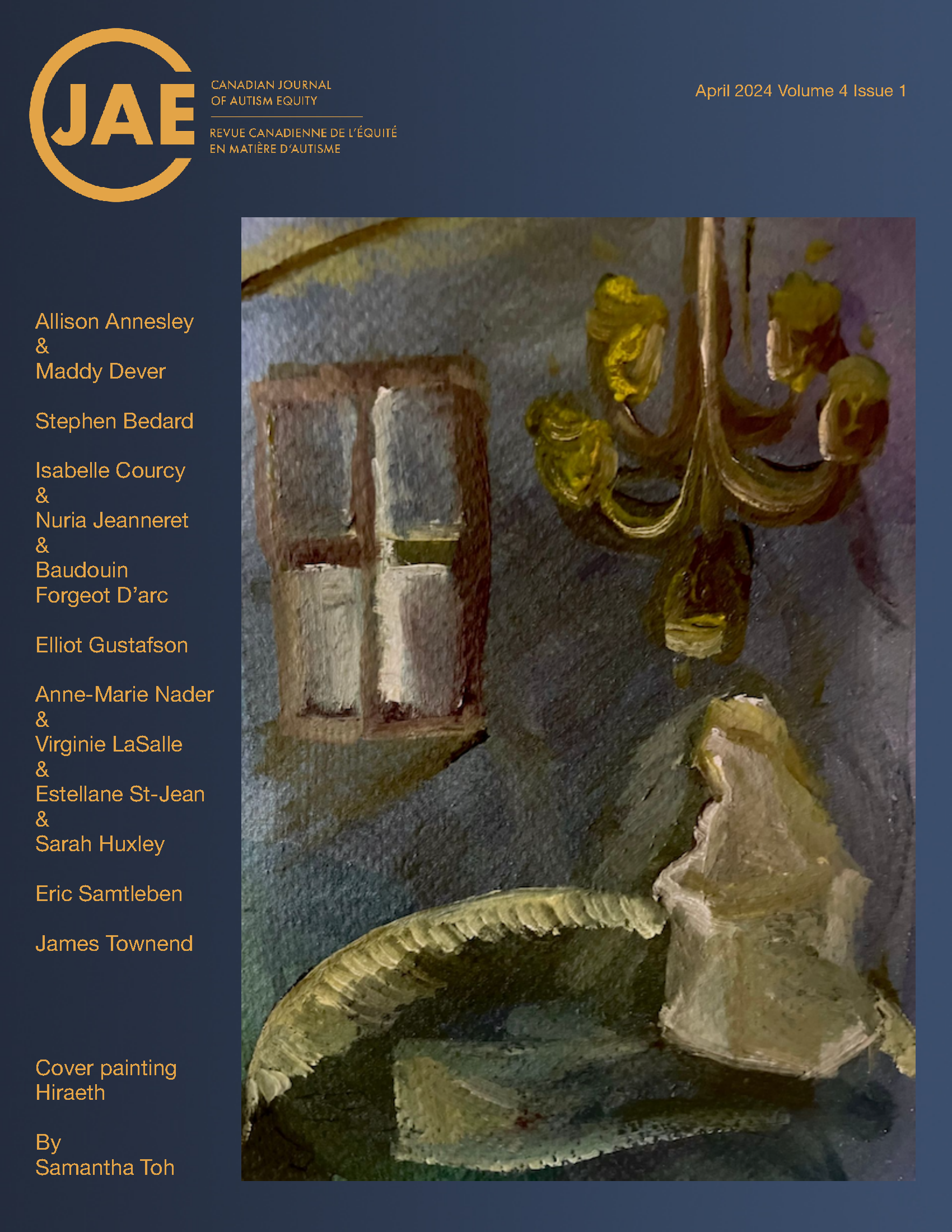Fostering Inclusion Around Housing Transitions
DOI:
https://doi.org/10.15173/cjae.v4i1.5688Keywords:
Inclusive Housing, Community Connectors, Autism Support Programs, Community Inclusion, Outcomes-Based Service DeliveryAbstract
This qualitative research project was designed to determine how Community Connectors can best support neurodiverse residents when they move into new housing. The research team also sought to generate greater awareness of the Connector role and support for a pilot. Team members collected and analyzed a range of perspectives, including lived experience, by running focus groups, conducting key informant interviews, and consulting with a diverse advisory panel. A Community Connector assisting neurodiverse residents as they transition to more independent housing can have an outsized impact, on housing success, housing stability, and quality of life. The Social Finance for Social Inclusion Solutions Lab has developed an outcomes-based pilot model to increase access to Community Connectors.
Connectors help residents form relationships and over time, develop a new network of support. Housing providers may also be more willing to welcome these tenants, knowing they have adequate support. Connectors can also facilitate volunteer or employment opportunities, further integrating residents as full and valued members of the community. We found a social impact bond could be a novel way of increasing access to Community Connectors. Both impact investors and government funders are interested in the outcomes a pilot would likely achieve. Social impact bonds are just one idea though. Any funding model that could pay for an outcomes-based pilot with independent evaluation, would generate the evidence required to scale and increase access to this important resource.
References
Diagnostic and Statistical Manual of Mental Disorders. (2013). DSM-5; American Psychiatric Association, 2013). Available at
https://www.psychiatry.org/psychiatrists/practice/dsm
Mefford, H.C., Batshaw M.L., Hoffman, E.P. (2012). Genomics, intellectual disability, and autism. The New England Journal of Medicine. Available at https://www.nejm.org/doi/10.1056/NEJMra1114194
Newschaffer, C.J., Croen, L.A.; Daniels J., Giarelli E., Grether J.K., Levy S.E., Mandell D.S., Miller L.A., Pinto-Martin, J., Reaven J., Reynolds A.M., Rice C.E., Schendel, D., Windham G.C. (2003). The epidemiology of autism spectrum disorders. Annual review of public health. Available at https://www.annualreviews.org/doi/abs/10.1146/annurev.publhealth.28.021406.144007
Wilkins J., Matson J.L. (2009). A comparison of social skills profiles in intellectually disabled adults with and without ASD. Behavior Modification. Available at https://journals.sagepub.com/doi/10.1177/0145445508321880
Srivastava, Anand K. and Schwartz, Charles E. (2014). Intellectual Disability and Autism Spectrum Disorders: Causal Genes and Molecular Mechanisms. Neuroscience & Biobehavioral Reviews. Available at https://www.sciencedirect.com/science/article/abs/pii/S0149763414000773?via%3Dihub
Employment and Social Development Canada. (2016). A backgrounder on poverty in Canada. Available at http://publications.gc.ca/site/eng/9.824654/publication.html
Institute for Research and Development on Inclusion and Society (IRIS). (2013). Looking into Poverty: Income Sources of Poor People with Disabilities in Canada. Available at https://irisinstitute.ca/2013/11/19/new-report-looking-into-poverty
United Nations Convention on the Rights of Persons with Disabilities (CRPD), Article 28 (2006). Available at https://www.un.org/development/desa/disabilities/convention-on-the-rights-of-persons-with-disabilities/article-28-adequate-standard-of-living-and-social-protection.html#:~:text=States%20Parties%20recognize%20the%20right,promote%20the%20realization%20of%20this
National Housing Strategy Act (NHSA) (2019) Available at https://laws-lois.justice.gc.ca/eng/acts/N-11.2/
Downloads
Published
How to Cite
Issue
Section
License
Copyright (c) 2024 Allison Annesley

This work is licensed under a Creative Commons Attribution-NonCommercial-ShareAlike 4.0 International License.
Authors retain copyright and grant the journal the right of first publication with the work simultaneously licensed under a Creative Commons Attribution License that allows others to share the work with an acknowledgement of the work's authorship and initial publication in this journal.
Authors are able to enter into separate, additional contractual arrangements for the non-exclusive distribution of the journal's published version of the work (e.g., post it to an institutional repository or publish it in a book), with an acknowledgement of its initial publication in this journal.
CJAE accepts articles that have not been published in any other journals/proceedings, unless copyright permission is assured, and have not been submitted for consideration to any other journals/proceedings at the time of submitting to the Canadian Journal of Autism Equity for consideration. While a paper is under consideration by CJAE, you agree not to submit the work to other journals/proceedings until review by CJAE is completed and a decision has been rendered.



